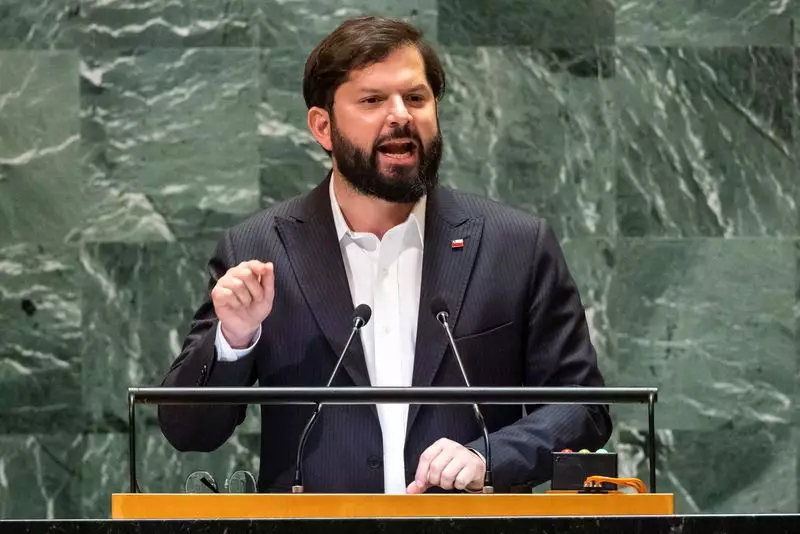In a significant move aimed at reshaping Chile’s societal landscape, President Gabriel Boric has unveiled a proposal for a 2.7% increase in the nation’s 2025 budget. This strategic budgetary expansion reflects Boric’s intent to prioritize national security, bolster healthcare, and enhance pension plans amid a climate that has necessitated a reevaluation of emerging challenges. By earmarking additional funds for these critical sectors, the government seeks to address rising concerns regarding public safety, healthcare accessibility, and social security for its citizens.
At the forefront of Boric’s agenda is a marked increase in funding dedicated to justice and security—projected to increase by $1.5 billion compared to the previous year. This allocation aims to elevate the presence of law enforcement on the streets, enhance police remuneration, and invest in prison infrastructure. Boric stated unequivocally, “Guaranteeing your right to security is the first priority for my government,” underscoring a commitment to establishing a safer environment. By projecting a 15% increase in security funding over three years, the administration appears to be responding to public demands for enhanced safety measures, marking a decisive pivot in governmental focus.
Compounding the complexities of national stability, Boric has adopted a firmer stance on immigration, particularly concerning undocumented migrants. He has proposed the expulsion of individuals who fail to comply with the government’s biometric registration procedures. This shift signifies a broader acknowledgment of the challenges posed by migration flows, particularly in light of the humanitarian crisis in Venezuela, which has led to vast numbers of Venezuelans seeking refuge in neighboring countries. Boric’s remarks at the United Nations General Assembly highlight his concern that Chile is currently ill-equipped to accommodate an influx of new migrants, signaling a potential policy pivot that may foster domestic contention.
Beyond security, the proposed budget offers an ambitious framework for enhancing the health sector and social programs. Notably, it allocates a substantial 42% increase for immunization programs, a critical response to public health needs. Additionally, the budget aims to infuse resources into education and cultural initiatives, recognizing their vital role in fostering a holistic and sustainable society. These investments reflect a balanced approach that seeks not only to secure citizens but also to empower them through improved healthcare and educational opportunities.
With Chile’s central bank projecting a tapering of inflation and moderate economic growth, the Boric administration is navigating a challenging economic landscape. The government’s growth target of 2.6% is modest in comparison to previous aspirations, reflecting a need for prudent fiscal policies. As Congress prepares to deliberate on the budget proposal, having previously approved tax legislation expected to yield an additional $1.2 billion in state revenues, the potential for robust debates looms. Lawmakers will have a 60-day window to assess and either approve or reject this significant budget proposal, a critical juncture for the Boric administration’s aspiration to navigate societal priorities amidst emerging geopolitical and economic realities.
The proposed budget for 2025 marks a pivotal moment in Chilean policy, highlighting a complex interplay between security, migration, health, and economic considerations. As it stands, the success of Boric’s plans will largely depend on both legislative approval and effective implementation in the months and years to come.

